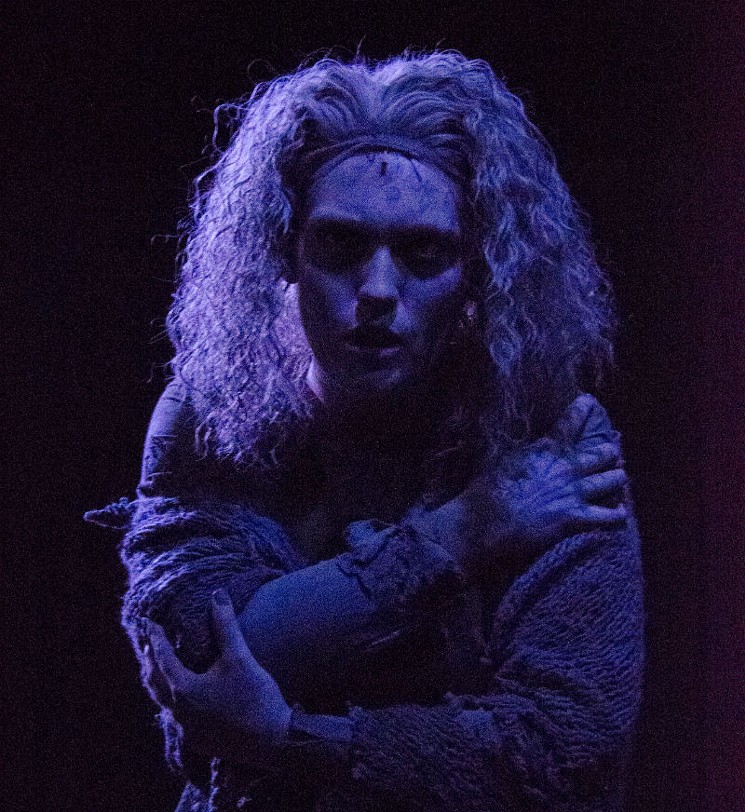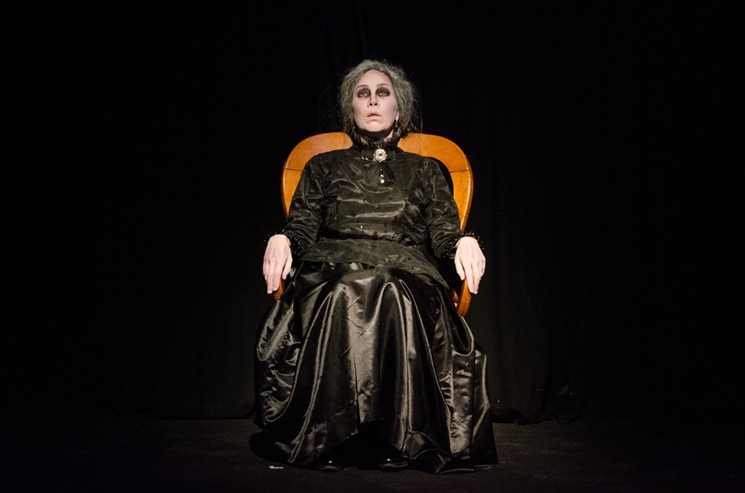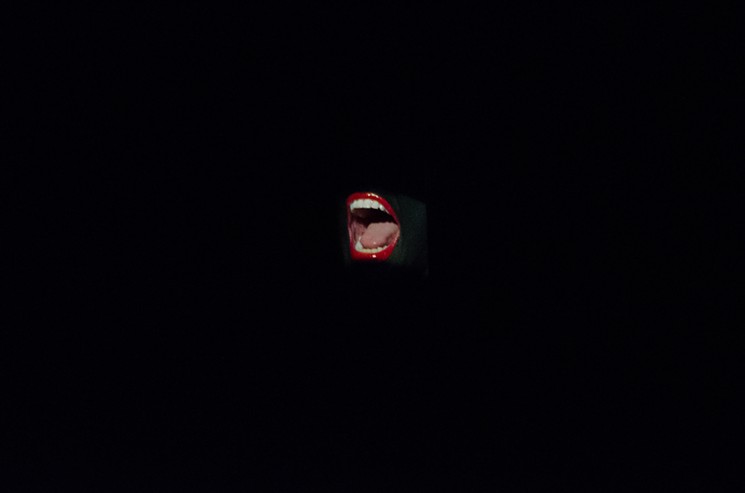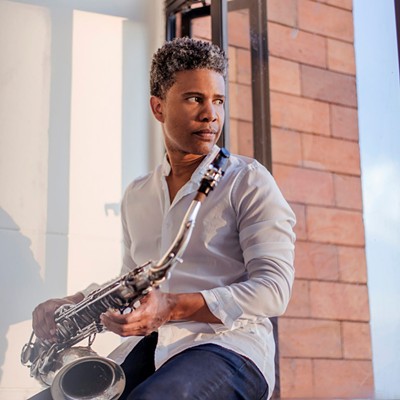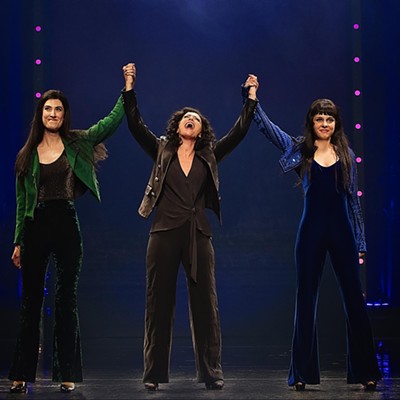Support Us
Houston's independent source of
local news and culture
account
- Welcome,
Insider - Login
- My Account
- My Newsletters
- Contribute
- Contact Us
- Sign out
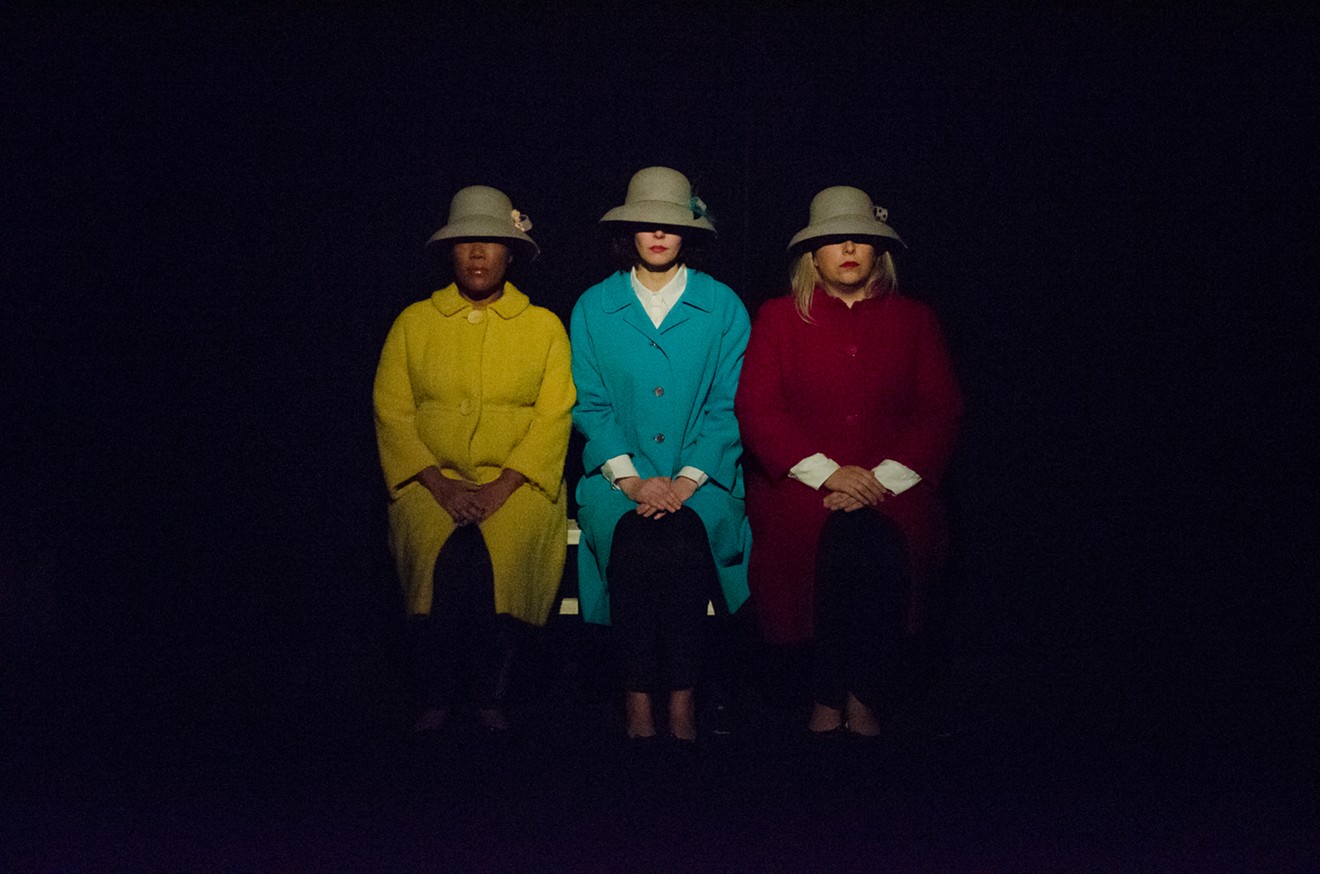
Arianna Bermudez, Callina Anderson and Katherine Rinaldi in Come and Go
Photo by Gentle Bear Photography
[
{
"name": "Related Stories / Support Us Combo",
"component": "11591218",
"insertPoint": "4",
"requiredCountToDisplay": "4"
},{
"name": "Air - Billboard - Inline Content",
"component": "11591214",
"insertPoint": "2/3",
"requiredCountToDisplay": "7"
},{
"name": "R1 - Beta - Mobile Only",
"component": "12287027",
"insertPoint": "8",
"requiredCountToDisplay": "8"
},{
"name": "Air - MediumRectangle - Inline Content - Mobile Display Size 2",
"component": "11591215",
"insertPoint": "12",
"requiredCountToDisplay": "12"
},{
"name": "Air - MediumRectangle - Inline Content - Mobile Display Size 2",
"component": "11591215",
"insertPoint": "4th",
"startingPoint": "16",
"requiredCountToDisplay": "12"
}
,{
"name": "RevContent - In Article",
"component": "12527128",
"insertPoint": "3/5",
"requiredCountToDisplay": "5"
}
]
It's overwhelmingly tempting for any critic, when writing about a production of Samuel Beckett works, to begin a review by penning paragraph after paragraph on the brilliance of the man, the work he accomplished and why you must pay reverence. Beckett is, after all, the English-language grandfather of anti-realist theater. The one who threw conventional plot out the window and instead focused on the exquisite and often absurd minimalism of the human existence.
But fear not dear readers, that won’t happen here. They’ll be no lecture in this review. Maybe you’re a Beckett stan, as the kids say. Maybe you don’t dig him. Perhaps you’ve seen a million productions of Waiting for Godot and loved each one. Or you’ve seen it but haven’t the foggiest. It's possible that Beckett’s most famous work rings no bells for you at all.
None of that matters when it comes to the beautifully evocative Samuel Beckett's Ladies Night, now on stage at Mildred's Umbrella.
Comprised of four of Beckett's short plays (Come and Go, Footfalls, Rockaby and Not I) featuring all female characters, Ladies Night is in some ways like watching a Bugs Bunny cartoon. You can watch as the innocent, and simply be swept away by the weirdness of it. You can be the aesthete, and marvel at how gorgeous the production looks. Or you can be the "adult" and concentrate on/try to puzzle out the meaning of Beckett's short works.
Each path serves up its own rewards. You simply need to be amenable toward the journey.
Come and Go (Directed by Jennifer Decker), the shortest of the plays, opens the evening. Three women, Vi, Flo and Ru (Callina Anderson, Katherine Rinaldi, and Arianna Bermudez) sit on a bench in a row, each clad in a primary color jacket and a straw hat tipped down covering their eyes. They're old friends, we realize. Went to school together we think. And now, in round-robin fashion, as one slowly departs the stage for a moment, the other two are left to gossip indecipherably about the missing friend.
While we know not what they say, the shocked reaction from each revelation is the same, a yelp followed by a question. Ru: (about Vi), "Does she not realize?" Vi: (about Flo), "Has she not been told?" Flo: (about Ru), "Does she not know?"
What secrets are these women sharing about their third compatriot? Is it health-related? Beckett notably likes his death themes. Does it have something to do with her diminished place in the world? Beckett's obsession with action in the face of bleakness may offer some clues here.
Truth is, as for each of the plays in Ladies Night (and all of Beckett's work in general) we don't really know. And that's the fun of it. What was he thinking? What do we take away from the play?
As the three women all return to the bench, holding hands in a pretzel-like fashion, all we can be certain of is their connection based on secrets shared and secrets kept.
After the somewhat comic experience of Come and Go, the mysterious and downright tragi-creepy Footfalls (Directed by Greg Dean) shakes us to attention.
Structured in four sections, we meet May, a bedraggled and hunched woman (played with staggeringly haunting precision by Whitney Zangarine) pacing endlessly back and forth. Nine steps, each one a noisy, slow shuffle.
She’s not well, that we can see. But it isn’t until we hear the off-stage voice of her elderly mother (Sally Burtenshaw) that we begin to piece together what the issue is. Sort of.
In each scene, we're given snippets about what's befallen the pair. May, it seems, was a captive caretaker to her elderly ill mother, missing out on the childhood others enjoyed. Or perhaps May was the one that was ill and she's projecting herself onto her aging mother. Maybe we're just watching a ghost doomed to pace forever and turn over the past, real or imagined.
As is usual in these works, it’s impossible to tell. But here, thanks to a standout performance by Zangarine, even the most unconvinced of Beckett audience members can’t help but be mesmerized by the eerily despondent scenes that unfold.
While we may not be sure who is alive or dead in Footfalls, there is no question that death, real human death, is being careened towards in Rockaby (Directed by Jeff Miller).
W (Carolyn Johnson resplendently goth in a black sparkly satin high neck gown, tousled bun and kohl stamped eyes) sits in a rocking chair perpetually in motion as her internalized voice plays off stage in a looping narrative easing her towards her final breath.
It takes a minute or two for us to realize that the voice we hear is not a friend or a nurse, but her own. Recounting her day minute by abstruse minute in a kind of soothing lullaby. She sits by the window, she looks out, she sees, she's perhaps seen, she decides it's time to stop time.
W takes her time to death, asking the voice for “more”, more narrative as she readies herself for the end. Repetition for dramatic effect is present in all four of these plays, but perhaps no more so that in Rockaby. W’s day is recounted numerous times, each iteration adding just a tad bit more until there is no more to add.
Is it really time for W? Is she elderly or resigned? Either way, of all the plays in Ladies Night, this one is the most decipherable. W decides when and how she goes. It’s the perfect distillation of Beckett’s view of bleakness. Yes, our world is filled with emptiness, so then how do we behave? How do we act in the face of nothingness? W chooses to rock herself to her death, in the same chair her mother before her died. One can’t help but see the beauty in that.
The final play, Not I (Directed by Greg Dean) is both the hardest to follow and the most intriguing of the lot.
Staged in pitch black with only one beam of light illuminating blood-red lips, Not I is a frenetic monologue/stream of consciousness. The Mouth (performed with amazing linguistic dexterity by Jenna Morris) spews forth so many ideas and notions in a loudly manic and jumbled fashion that we barely have a moment to parse what's being said.
Speaking in third person, we gather that this is the life story of a 70-year-old woman, abandoned by her parents, unloved, and suffering the consequences of some unidentified trauma.
That she's only a mouth, rambling on in an attempt to make sense of what's happened these years, could be seen as female reduction. But in this case, the reduction is one of power. A woman denied a "voice" in the world, finally being acknowledged as nothing but voice.
Or not. Who knows, it's Beckett after all. But damn if this play doesn't look freaking cool.
One final production note. Beckett was a control freak when it came to these plays. Notes on movement, timing, costumes, etc. were well laid out for directors designers and actors.
Yet still, instructions are only notes on a page. That these plays look so sumptuously or dreary or haunting, kudos must be paid to the talents behind the scenes – Laura Moreno for her stunning Costume/Makeup Design and Grey Starbird for some of the best lighting we’ve seen in ages.
As was mentioned – there's no way to leave Ladies Night with a full understanding of what you've seen. But then life is bloody hard to understand. Don't you want to see the confusion with this much panache?
Samuel Beckett’s Ladies Night continues through January 18 at Rec Room, 100 Jackson. For information, visit mildredsumbrella.com. Pay what you can.
KEEP THE HOUSTON PRESS FREE...
Since we started the Houston Press, it has been defined as the free, independent voice of Houston, and we'd like to keep it that way. With local media under siege, it's more important than ever for us to rally support behind funding our local journalism. You can help by participating in our "I Support" program, allowing us to keep offering readers access to our incisive coverage of local news, food and culture with no paywalls.
Jessica Goldman was the theater critic for CBC Radio in Calgary prior to joining the Houston Press team. Her work has also appeared in American Theatre Magazine, Globe and Mail and Alberta Views. Jessica is a member of the American Theatre Critics Association.
Contact:
Jessica Goldman
Trending Arts & Culture
- Best Bets: Earth Day, Noche Caliente and a Spring Festival
- The Story Stalls But The Beat Goes On in The Cher Show at TUTS
- Using Flashbacks and Direct Quotes From the Classic Book, Alley Theatre Presents Jane Eyre
-
Sponsored Content From: [%sponsoredBy%]
[%title%]

Don't Miss Out
SIGN UP for the latest
arts & culture
news, free stuff and more!
Become a member to support the independent voice of Houston
and help keep the future of the Houston Press FREE
Use of this website constitutes acceptance of our
terms of use,
our cookies policy, and our
privacy policy
The Houston Press may earn a portion of sales from products & services purchased through links on our site from our
affiliate partners.
©2024
Houston Press, LP. All rights reserved.

